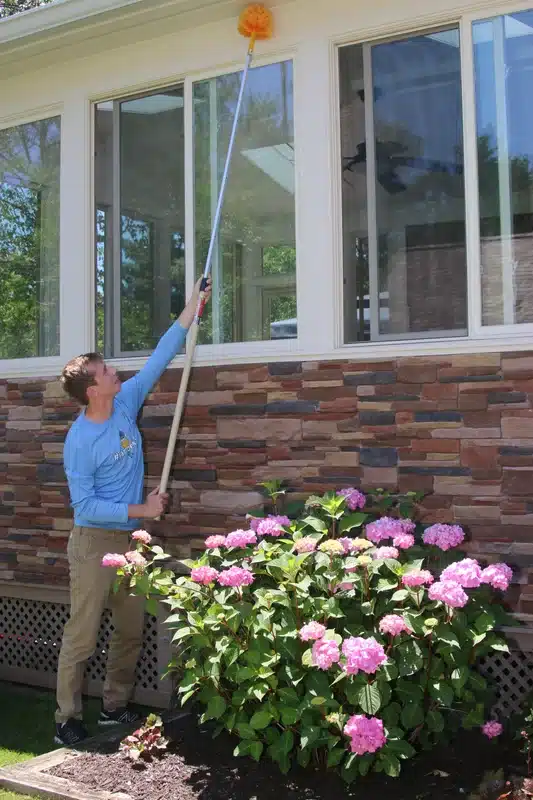If you’re dealing with ants in your kitchen or worried about termites eating your home’s foundation, you’ve probably wondered whether investing in professional pest control is actually worth the money. The short answer is yes—but the full picture involves weighing upfront costs against potential damage, health risks, and long-term peace of mind.
After working as a licensed pest control technician since 2015, I’ve seen firsthand how the right approach can save homeowners thousands while preventing headaches down the road. I’ve also witnessed the costly consequences when pest problems go untreated or when DIY efforts fall short.
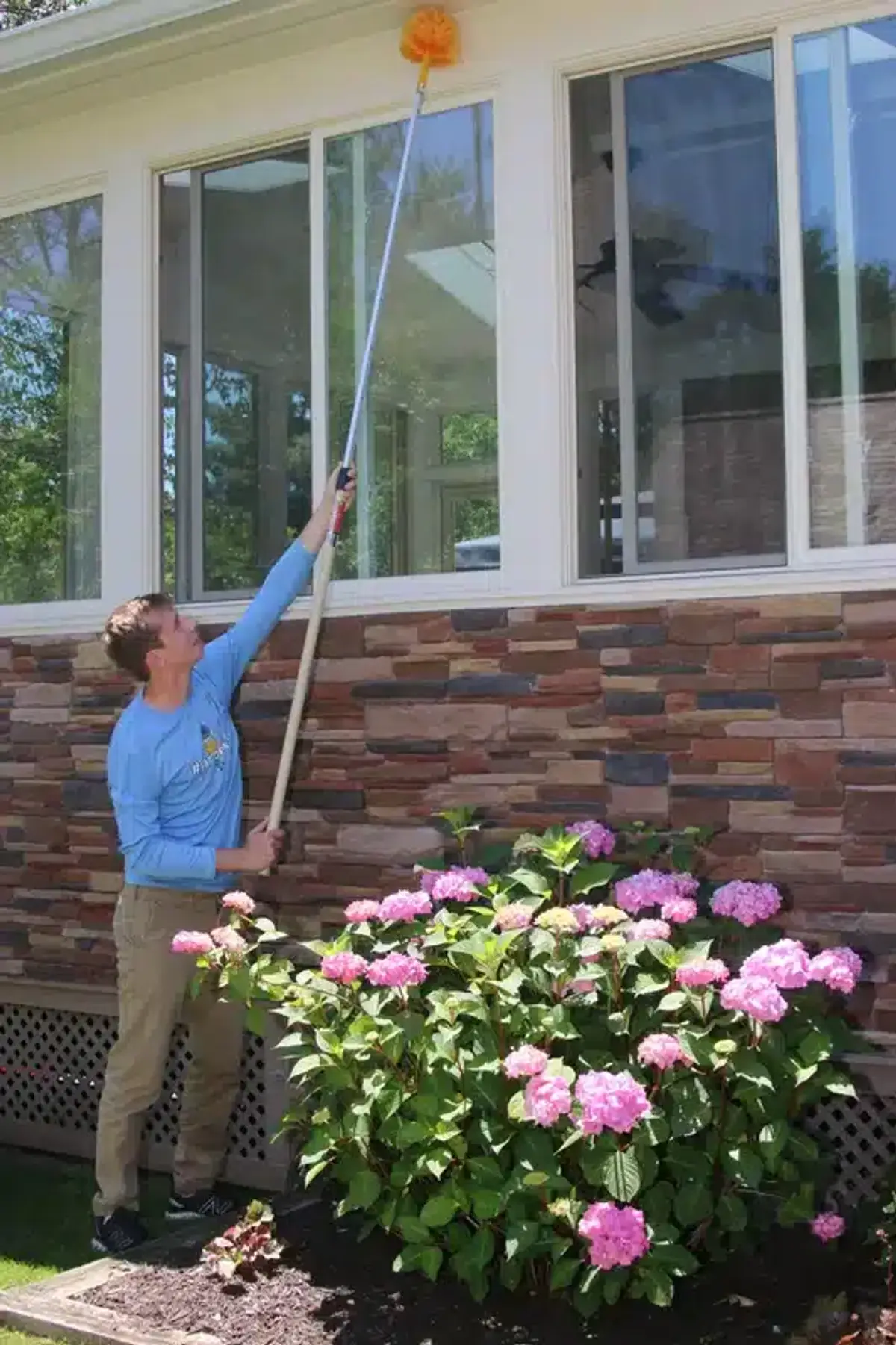
The Real Cost of Pest Control vs Property Damage
When evaluating whether pest control is worth it, you need to look beyond the monthly service fee. Wood-destroying insects alone generate an estimated $11 billion in prevention and repair costs across the U.S. every year.
Case Study: When a Small Bulge Revealed Major Damage
During my training in Alexandria, we responded to what seemed like a minor issue—homeowners noticed a small bulge in their window sill. What we discovered changed everything I thought I knew about termite activity and the hidden costs of delayed treatment.
- Initial sign: A barely visible bulge in the window sill
- What we found: Termites had eaten right up to the paint layer
- Further investigation: Mud tunnels running up foundation walls in the crawl space
- Extent of damage: Years of hidden structural harm requiring expensive repairs
This experience taught me why understanding treatment options and maintaining professional pest control protection are so critical for protecting your biggest investment.
This perfectly illustrates how the cost of reactive treatment and structural repairs can far exceed ongoing preventive pest control. A triannual pest control service typically costs $300-800 annually, while professional exterminator services for major infestations can run into thousands.

DIY vs Professional Pest Control: The Numbers
About 55% of U.S. consumers used DIY methods in 2022, mainly because they seemed more affordable upfront. However, this doesn’t tell the whole story about long-term costs and effectiveness.
DIY Pest Control Costs
DIY pest control might seem cheaper initially, but the real costs add up quickly. You’ll need to factor in:
- Initial product purchases ($50-200 per treatment)
- Protective equipment and application tools
- Your time (valued at local median wage)
- Disposal fees for leftover pesticides
- Repeat treatments when initial efforts fail
For bed bugs specifically, DIY chemical kits average under $150 but often require multiple rounds. Meanwhile, professional bed-bug remediation averages $1,225 for a single-family house—but it’s typically a one-time cost with warranty protection.
| DIY Approach | Professional Service | |
|---|---|---|
| Upfront Cost | $50-200 per treatment | $300-800 annually |
| Expertise Level | Limited knowledge | Licensed technicians |
| Products Available | Consumer-grade only | Professional-grade |
| Warranty | None | Full protection |
| Time Investment | Multiple weekends | Scheduled visits |
Professional Pest Control Service Value and Treatment Effectiveness
Professional pest control companies bundle inspection, treatment, and warranty protection. A triannual pest control service provides ongoing monitoring that catches problems early, when they’re easier and cheaper to address.
In my experience helping over 100 customers with termite concerns, proactive systems like Sentricon are highly effective for most homeowners. However, severe infestations sometimes require targeted liquid treatments using professional-grade products like Premise or Termidor—options that aren’t available to DIY pest control users.
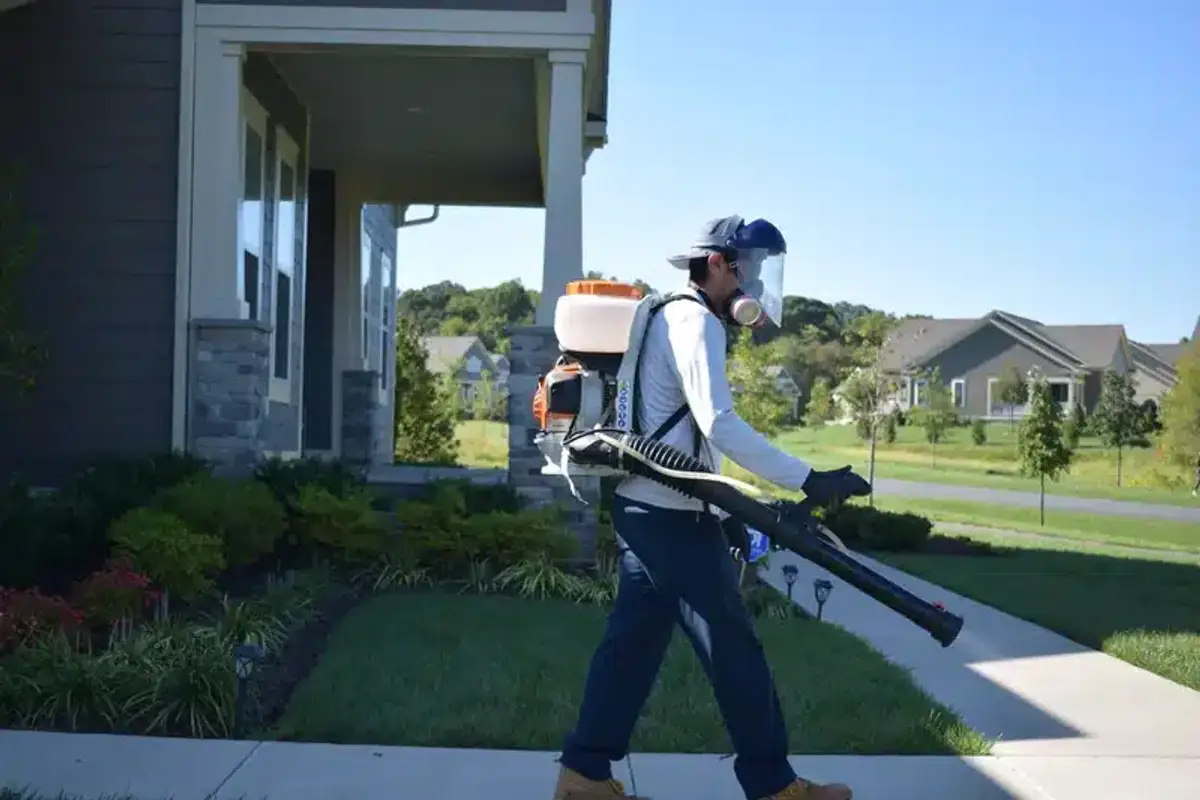
Health Protection and Risk Reduction
Beyond property damage, pest control protects your family’s health in ways that are hard to put a price tag on. Research shows that 30-70% of inner-city asthmatic children are sensitized to cockroach allergens, with high bedroom allergen levels linked to more emergency room visits. Learn more in our pest library.
In the DC metro area where we work, tick-borne diseases are a real concern. Virginia Department of Health reports 300-400 Rocky Mountain Spotted Fever cases annually, plus Lyme disease and alpha-gal allergy cases. Professional pest control treatments can significantly reduce these health risks around your home.
There’s also the pesticide application risk to consider. Studies show that pesticide misapplications by non-professionals are more than twice as common as those by licensed applicators, and they’re strongly associated with human exposure incidents.
Essential Prevention Steps for Health Protection
- Moisture Control: Fix leaks promptly and maintain proper ventilation to reduce pest-friendly environments
- Sanitation: Keep food sealed, clean crumbs immediately, and maintain clean living spaces
- Professional Inspection: Schedule triannual pest control inspections to catch health threats early
- Outdoor Management: Trim vegetation away from home and eliminate standing water to reduce tick and mosquito risks
When Professional Pest Control Makes the Most Sense
While DIY solutions work for some minor pest issues, certain situations definitely call for professional intervention:
Structural Threats
Termites and carpenter ants pose serious structural risks. I’ve found that severe infestations don’t always respond to bait stations, requiring more targeted approaches that only licensed technicians can provide. The potential for extensive property damage makes professional treatment worth every penny.
Health-Risk Pests
Rodents, cockroaches, and disease-carrying pests warrant professional attention. In Old Town, we developed a four-step rodent protocol based on local homeowner experiences. One common mistake I see is competitors recommending expensive full attic re-insulation for rodent issues, when targeted treatment at the lower level is usually more effective and affordable.
Recurring Infestations and Advanced Pest Control Treatments
If you’ve tried DIY methods multiple times without lasting success, it’s time to call in professionals. Professional pest control treatments typically show faster results and longer-lasting protection than DIY approaches.
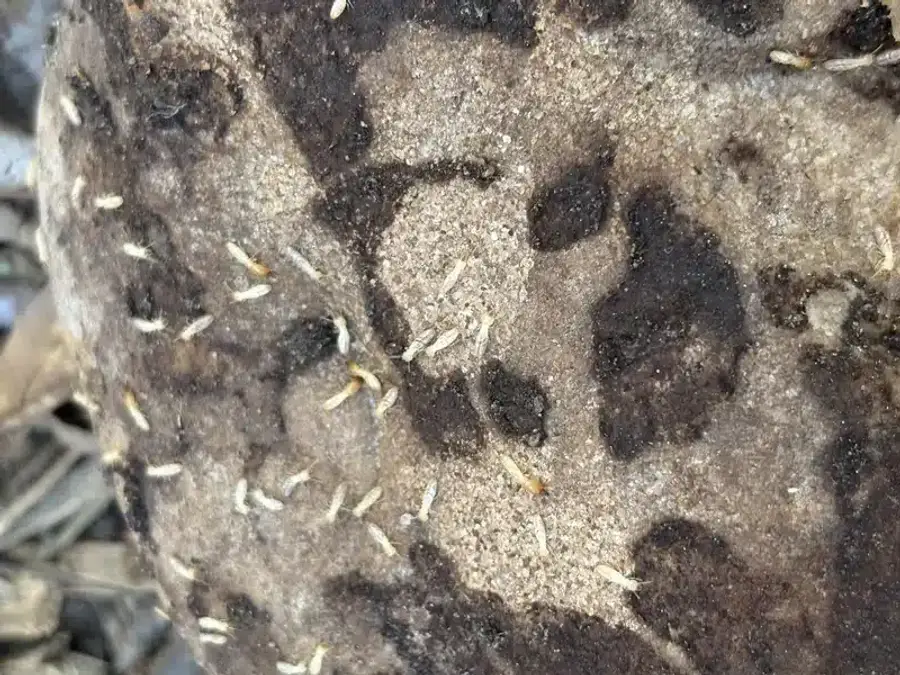
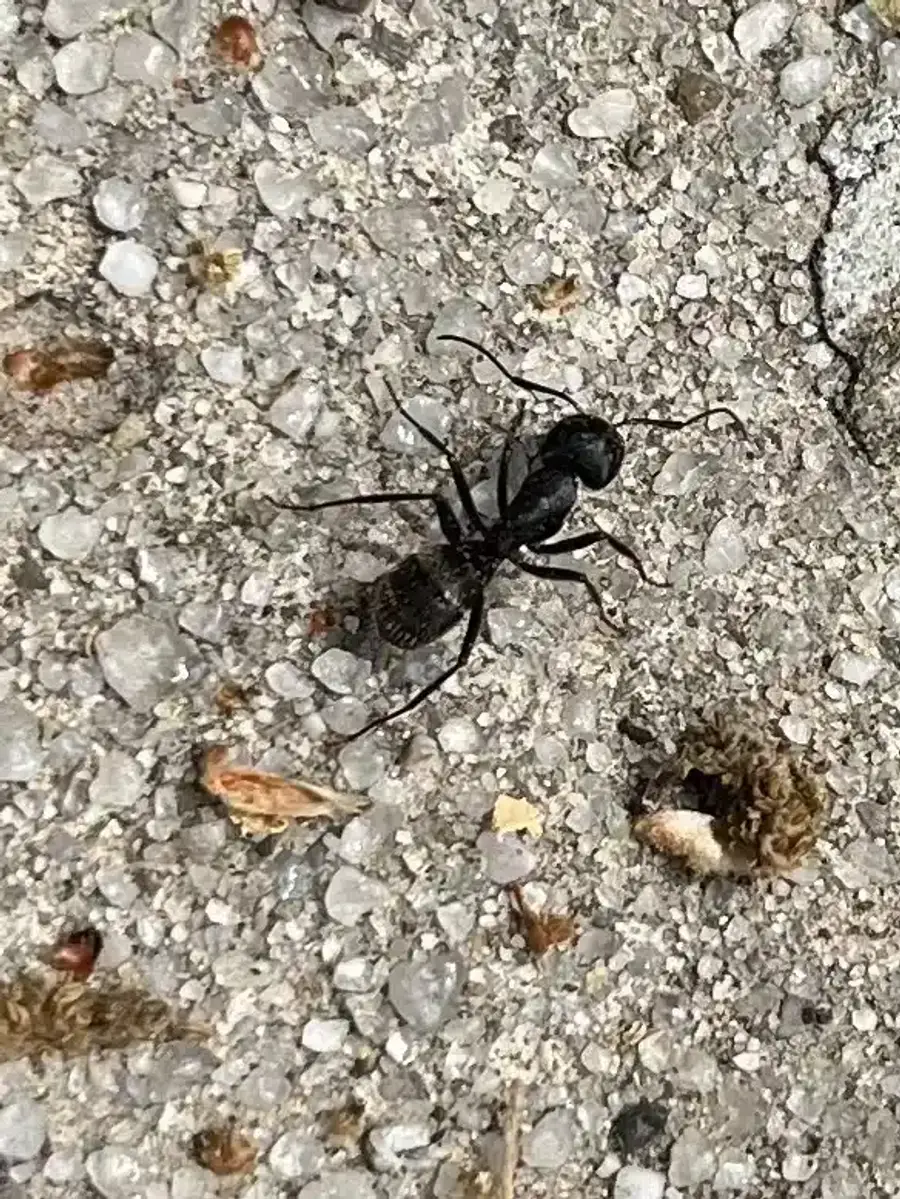
The Benefits of Quarterly Pest Control Service
A tri-annual service (three times per year) schedule aligns with seasonal pest activity patterns. Different pests become active at different times, and professional pest control treatments target these cycles effectively.
Every three months, registered technicians inspect your property, identify potential entry points, and apply preventative treatments. This proactive approach catches problems before they become full-blown infestations, saving you money and stress.
My own family’s backyard had serious mosquito issues due to heavy vegetation and moisture. Through trial and error, we learned that a combination of IN2Care traps and targeted vegetation spray worked best. This experience is now part of our service offerings and has saved customers both time and frustration.
Warranty and Callback Protection
Professional pest control companies typically offer warranty coverage and free callbacks between scheduled visits. If you see any pest activity after treatment, they’ll return at no extra cost. This peace of mind is something DIY methods simply can’t provide.
Termite bonds and warranties can also transfer to new homeowners, protecting your property value during resale. Real estate transactions often require wood-destroying insect clearances, and having an active warranty streamlines this process.

Integrated Pest Management: The Smart Investment
The most effective pest control solutions use integrated pest management (IPM) approaches. Rather than just spraying pesticides, IPM combines inspection, prevention, monitoring, and targeted treatment.
EPA-funded IPM interventions have shown impressive results consistently across multiple studies and urban environments.
What does the science say? 🔬
In one comprehensive New York City study, a single IPM visit cut cockroach counts by 75% at three months and 88% at six months, significantly outperforming traditional calendar-based spray programs.
This research demonstrates that integrated pest management approaches, which combine inspection, monitoring, and targeted treatment, achieve superior long-term results compared to routine pesticide applications without proper assessment.
Professional pest control specialists have the training and experience to implement true IPM strategies. They identify the root causes of pest problems—moisture issues, entry points, food sources—and address them comprehensively.
Property Value Protection and Insurance Considerations
Pest problems can seriously impact your home’s value. Termite history can lower sale prices by 20-30% or extend time on market. Even worse, standard homeowners’ insurance policies exclude termite and carpenter ant damage because insurers consider these preventable problems.
This makes investing in professional pest control even more valuable. You’re protecting an asset worth hundreds of thousands of dollars with a relatively small annual investment. FHA and VA loans require wood-destroying insect clearances, and having an active pest control plan demonstrates responsible homeownership to lenders and buyers.
Real-World Success Stories
The data on professional pest management effectiveness is compelling. In Philadelphia, a 458-unit affordable housing complex using IPM kept 97% of units bed-bug-free while achieving $40,000 in annual savings and 40% reduction in technician time.
For termite control specifically, research shows approximately 25 subterranean termite colonies per suburban acre. This reinforces why continuous protection through quarterly treatments is cost-effective compared to reactive repairs.
We get numerous calls in the DC metro area about ants, German and American cockroaches, and rodents. Proper rodent control prevents health risks and property damage, while identifying carpenter ants early can save thousands in structural repairs.
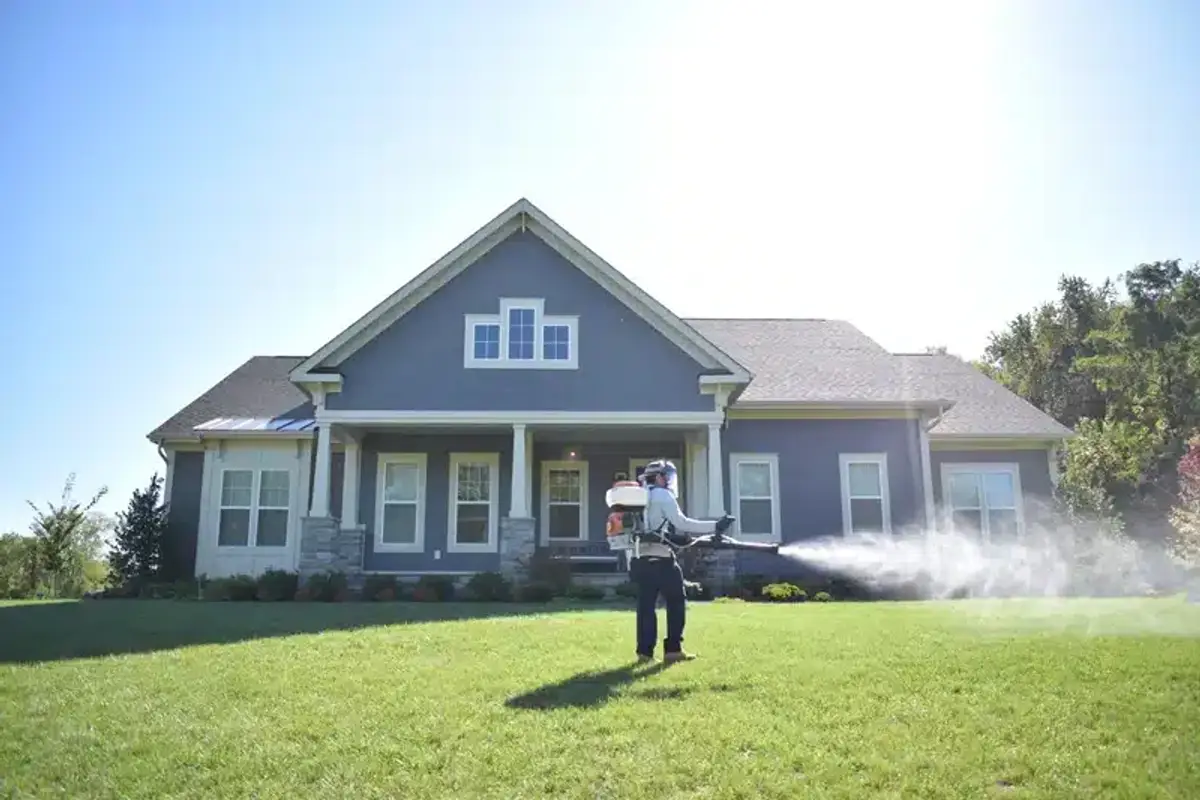
Hidden Costs of Inadequate Treatment
When DIY pest control fails, the hidden costs can be substantial. You might need to purchase additional products, spend more weekends dealing with the problem, or ultimately call professionals anyway—often when the infestation is worse and more expensive to treat.
Professional pest control companies use products and methods that aren’t available to consumers. They also have the training to identify pest species accurately and choose the most effective treatment approach. A technician can spot the difference between nuisance ants and destructive carpenter ants, preventing unnecessary damage.
Plus, there’s your time to consider. Professional visits consolidate pest management into scheduled service windows, while DIY approaches often require multiple weekends for trap checks, re-applications, and cleanup.
Making the Smart Choice for Your Home
When you weigh all the factors—prevented damage, health protection, time savings, warranty coverage, and peace of mind—professional pest control is definitely worth the investment for most homeowners. The cost of prevention is almost always less than the cost of dealing with damage and infestations after they occur.
A triannual pest control service provides year-round protection against dozens of common pests. It’s actually worth considering this as routine home maintenance, like HVAC servicing or gutter cleaning. The benefits of professional pest management extend far beyond just eliminating bugs you can see.
If you’re still on the fence about whether a professional pest control service is worth it, consider this: the peace of mind alone—knowing your home is protected by registered technicians using proven methods—often justifies the cost. And with warranty protection and callback guarantees, you’re not just paying for treatment; you’re paying for results.
Ready to protect your home with professional pest control? Our experienced team has been serving the DC metro area for over 50 years. Call us at 703-683-2000 for a detailed consultation, or email us at info@bettertermite.com. We’ll assess your specific situation and recommend the most cost-effective approach to keep your home pest-free.
Frequently Asked Questions
Are pest control companies a waste of money?
+
No, pest control companies provide significant value through prevented damage, health protection, and time savings. Professional services typically cost much less than repairing structural damage from termites or dealing with health issues from pest-related allergens. The key is choosing a reputable company that uses integrated pest management approaches rather than just chemical spraying.
What are the disadvantages of pest control?
+
The main disadvantages include the ongoing cost and the need to schedule regular appointments. Some homeowners also worry about pesticide exposure, though professional companies use targeted applications and lower-risk products. Additionally, you become dependent on the service rather than handling everything yourself. However, these minor inconveniences are typically outweighed by the benefits of professional protection.
How much should you spend on pest control?
+
Most homeowners spend $300-800 annually on tri-annual pest control service (three times per year), which breaks down to about $25-65 per month. This investment protects assets worth hundreds of thousands of dollars. For comparison, the average termite repair bill is around $3,000, while severe structural damage can cost tens of thousands. The cost varies based on home size, pest pressure, and service level.
What is the hardest pest to get rid of?
+
Bed bugs are often considered the hardest pest to eliminate because they hide in tiny cracks, reproduce quickly, and have developed resistance to many pesticides. They require specialized heat treatments or professional-grade chemicals that aren't available to consumers. Termites are also challenging because they often remain hidden for years, causing extensive damage before detection. Both pests typically require professional intervention for effective control.
Is tri-annual pest control service enough?
+
Yes, tri-annual treatments (three times per year) align well with seasonal pest activity patterns and provide effective year-round protection for most homes. However, some situations may require more frequent service, such as severe infestations, high pest pressure areas, or specific pest problems like mosquitoes during peak season. Your technician can recommend the optimal schedule based on your property's needs.
Does pest control actually prevent future infestations?
+
Professional pest control is highly effective at preventing future infestations when applied consistently. Tri-annual treatments (three times per year) create protective barriers around your home and address conditions that attract pests. Studies show that integrated pest management approaches can reduce pest populations by 75-90% and maintain long-term control. The key is working with experienced technicians who understand local pest patterns and use proven prevention strategies.
What should I expect from a professional pest control inspection?
+
A thorough pest control inspection should include checking entry points, moisture areas, potential nesting sites, and signs of current activity. The technician should identify pest species, assess infestation levels, and explain treatment recommendations. They should also discuss prevention measures and answer your questions about the process. A quality inspection forms the foundation of an effective treatment plan.
Can I cancel my pest control service if I'm not satisfied?
+
Most reputable pest control providers allow you to cancel anytime without binding contracts, though some may require 30 days notice. Look for companies that offer unlimited callbacks between scheduled services and stand behind their work with warranties. If you're not seeing results, the company should return to retreat the problem at no additional cost before you consider canceling.
With five years of hands-on experience in the pest control industry, George Schulz is a registered technician with the Virginia Pest Management Association and a proud third-generation professional in a family business that's been protecting homes for over 57 years. He manages and trains a team of service pros while also leading internal research efforts—recently spearheading a deep-dive review of thousands of documents on pest control materials to hand-pick the most kid and pet friendly, most effective solutions tailored specifically for homes in the DC metro area.
